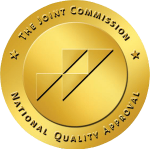Misconceptions
Common Misconceptions Regarding Hospice
Click on statement to learn more.
Hospice neither prolongs life nor hastens death. It centers on comfort measures. By providing good pain and symptom management, hospice helps to improve the quality of life when days are numbered.
Hospice is care designed for patients with a life-limiting illness. Hospice is not where you go to die, rather hospice professionals are trained to assist patients in living their lives fully, completely, and without pain until the end of their lives.
Hospice patients and families receive care for an unlimited amount of time, depending upon the course of the illness. There is no fixed limit on the amount of time a patient may continue to receive hospice services.
Medicare beneficiaries pay little or nothing for hospice. For those ineligible for Medicare, most insurance plans, HMO’s, and managed care plans cover hospice care.
Hospice care is provided wherever the patient may be, in their own home or a family member’s, a nursing home, or an assisted living facility. Hospice is also provided in in-patient units, VA Hospitals, and some correctional facilities.
Family members are encouraged, supported, and trained by hospice professionals to care for their loved ones. Hospice staff is on call to the patient and their families 24 hours a day, 7 days a week, to help family and friends care for their loved ones.
Hospice is for anyone facing a life-limiting illness, regardless of age.
Bereavement services and grief support are available to family members for up to one year after the death of a patient.
Hospice is not giving up. It is a choice to live life fully until the end. A patient determines how they want to live their final months based on their own personal wishes, goals, and beliefs.
Hospice care is provided by a team including the hospice medical director, registered nurses, medical social workers, hospice care aides, spiritual counselors, bereavement coordinators, and volunteers. Care is delivered intermittently based on the needs of the individual patient. While Hospice staff is on call 24 hours/day, they are not with the patient the entire time.
Hospice care is provided by an interdisciplinary team which includes the patient’s doctor as well as the Hospice Medical Director, hospice nurses, social workers, spiritual counselors, hospice care aides, and volunteers.
Palliative care is for individuals in the hospital with advanced or chronic illnesses who may be continuing curative therapies, such as surgery, radiation, or chemotherapy. Anyone with a serious illness, regardless of life expectancy, can receive palliative care.
Hospice is for individuals who are facing a life-limiting illness or injury and have a life expectancy of six months or less. Hospice provides symptom control and compassionate care for individuals and their families, regardless of where their care is being provided. The focus is on helping individuals retain dignity during the terminal phase of illness by managing pain and symptoms and maintaining the best possible life.
Hospice is open to anyone with a serious health problem including Alzheimer’s, heart failure, kidney failure, stroke, cancer and other life-limiting illnesses.
If at any time after entering hospice care you decided to seek treatment for your illness. All Seasons Hospice can assist you for transfer to acute hospital for aggressive treatment.
All Seasons Hospice does offer care to patients in nursing homes through contracts with those nursing homes. For more information about whether a particular nursing home is contracted for hospice care, call 1-866-986-1644. Keep in mind Medicare will not pay for a skilled bed in a nursing home and hospice care at the same time.
As All Seasons Hospice coordinates your care with your physician, you may continue to see your own personal doctor. Your physician may arrange for your care to be co-managed with our hospice physicians or may ask one of our hospice physicians to take over your care completely. If your physician asks one of the hospice physicians to become your primary doctor, he/she is still welcome to help with your care at any time.
After beginning hospice care, you can choose to stop at any time. If you decide to stop hospice care, you can re-enter later.
All hospice programs are required to provide core services. All Seasons Hospice chooses to provide additional services such as MD/NP home visits and intravenous (IV) fluids, medication and nutrition.
Not eating and drinking is a natural part of the dying process. Dehydration is NOT PAINFUL.
After six months, your hospice physician will determine continued eligibility or discharge. If a physician determines hospice is appropriate, you may be readmitted to the hospice program.
Hospice does not require a patient to remain homebound. We encourage patients to enjoy life by continuing to participate in their normal activities, family life, trips or vacations.
You may choose at any time to pursue a curative or alternative treatment. You will stop hospice care, and when the treatment is complete, you may be readmitted to the hospice program.
No. All Seasons Hospice does not require a DNR in order to be eligible for hospice care.
All Seasons Hospice can provide home services to you if you live with family or in a contracted long-term care facility.
All Seasons Hospice will not take away your medications. Nurses will review your current medications with you and your caregivers; your physician may recommend stopping any that are no longer needed. Medications necessary to manage pain and other symptoms related to your condition will be provided at no charge. You always have the option of paying for other particular medicines.
In hospice care, a variety of pain management techniques can be employed, and they encompass physical and emotional aspects. From spiritual counseling and art or music therapy to occupational and physical therapy, there are many alternative ways to comfort patients and make their final time on earth peaceful.



